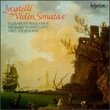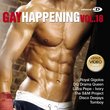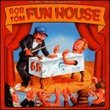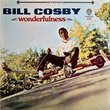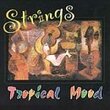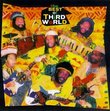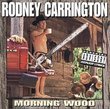| All Artists: Franz Liszt, Leslie Howard Title: Liszt at the Opera: Operatic Fantasies, Paraphrases, and Transcriptions, Vol. I (Complete Music for Solo Piano, Vol. 6) Members Wishing: 0 Total Copies: 0 Label: Hyperion UK Release Date: 11/16/1993 Album Type: Import Genres: Special Interest, Classical Styles: Marches, Opera & Classical Vocal, Ballets & Dances, Baroque Dance Suites, Chamber Music, Historical Periods, Classical (c.1770-1830) Number of Discs: 2 SwapaCD Credits: 2 UPC: 034571163710 |
Search - Franz Liszt, Leslie Howard :: Liszt at the Opera: Operatic Fantasies, Paraphrases, and Transcriptions, Vol. I (Complete Music for Solo Piano, Vol. 6)
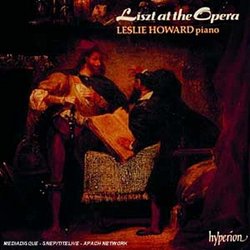 | Franz Liszt, Leslie Howard Liszt at the Opera: Operatic Fantasies, Paraphrases, and Transcriptions, Vol. I (Complete Music for Solo Piano, Vol. 6) Genres: Special Interest, Classical
|
Larger Image |
CD DetailsSimilar CDs
Similarly Requested CDs
|
CD ReviewsWhere Are The Rave Reviews ? This is Incredible Hexameron | 04/28/2005 (5 out of 5 stars) "This is a treat for opera fans and fans of classical piano. Franz Liszt loved the opera- a medium which is at heart musical and he felt inspired to transcribe operatic music for piano, probably out of his personal passion for opera and as a way for the middle-class folk of Europe who could play piano (and men and women did those days) to entertain in their homes. This is a vast collection of his best opera-to-piano transcriptions. The pianist last name Howard is a virtuoso, too bad he is'nt that well-known. He is playing piano music which is really quite difficult to execute. Liszt made the piano into an orchestra in itself and composed symphonic transcriptions of Beethoven and Berlioz. This is a rare and miraculous recording album and I feel that every fan of classical music and opera ought to own it. The excerpts here, with some variations by Liszt's part, include Mozart's Don Giovanni, Verdi's Aida (the Finale) Webber's Die Freeschutz, Tchaikovsky's Eugene Onegin- the Polonaise, Wagner's Tristan and Isolde, Isolde's Liebestod, Berlioz' Benvenuto Cellini, music of Auber, Gounod's Faust (the Waltz) and Bellini's Norma among others. This is worth the price. The music is clear, crisp, beautiful and transcendent. Do not miss your chance of owning this glorious music, which if you are musically inclined, you can play on your own home. Opera on piano is great recital music." Liszt the Impresario - Part 1 Hexameron | 08/19/2006 (5 out of 5 stars) "Fantasies, paraphrases, potpourris and virtuosic piano transcriptions of opera numbers are usually dismissed by the "serious" classical listener... and it's their loss. I am an avid explorer of this music territory and am intimate with the many fantasies of Thalberg, Herz, Czerny, Pixis and even Leybach and Ketterer. These operatic paraphrases, snubbed as mere flashy virtuoso vehicles, are often shining examples of technical innovation and expert embellishment and variation-weaving. Putting the high-brow snootiness aside, I can simply state as a music listener that they are melodious jewels and thrilling piano music. Liszt's essays in the operatic transcription/fantasy, however, go beyond his predecessors and contemporaries: he transforms this genre into a respected art form. In the fantasies, Liszt crafts well-constructed, epic, and dramatic piano music from simple themes. And his transcriptions are monuments of meticulous reverence and pianistic genius.
This 2-CD Volume showcases the familiar and unfamiliar operatic piano works. Liszt takes us through dramatic storms, rousing waltzes, terrifying marches, lamenting hymns, romantic songs, and brooding worlds. Liszt worshipped Weber for most of his creative life and poured his best efforts into transcribing the "Der Freischütz" overture; it is powerful, memorable and (I believe) rivals the orchestral version. The Reminiscences of "Don Juan" have been done to death, and Howard gives his best shot, but fails to compete against the many great performances out there. For his paraphrase of "Aida," Liszt picked the sublime and ethereal finale where Radames and Aida die together; it works as remarkably beautiful piano music. Liszt augments the tuneful polonaise from Tchaikovsky's "Eugene Onegin" with brilliance. Chernomor's march from Glinka's "Ruslan und Lyudmila" is a perfect menacing concoction; Liszt's transcription is devilish and rip-roaring. Perhaps the most profound music Liszt chose to paraphrase is a chaconne from Handel's "Almira." I have never heard this music in its operatic setting, but as piano music, it is as incredibly moving as a Beethoven adagio or Chopin nocturne. The Benediction from Berlioz's "Benvenuto Cellini" is just glorious and full of enticing melodic material. And then Howard outdoes himself with an emphatic performance of the catchy waltz from Gounod's "Faust." In Liszt's hands, this becomes like a Mephisto Waltz and tickles the ear with its impish introduction. While the Wagner-Liszt "Liebestod" is nothing new, I must passionately proclaim that Howard's execution is among the greatest I have ever heard. In fact, no one else I have sampled has played the climax with such sonority, power, technical precision, and conveyance of emotional profundity. Liszt's Reminiscences of "Lucia de Lammermoor" is a total rarity, although Brendel recorded the Cavatine part. The unknown Funeral March is the outstanding segment where Liszt summons darkness and tension in this rich paraphrase. The transcription of an excerpt from Ernst's "Tony" brings lovely music from the dustbin to the concert stage; an excellent and indeed stunning transcription by Liszt. One of the greatest examples of artistry is undeniably Liszt's Illustrations of Meyerbeer's "L'Africaine." The first part opens with an otherworldly crescendo of tolling tragic chords that segway into heavenly thematic material. Liszt evokes heroism, romance, and triumph. Surely the three pieces on themes by Auber are not that noteworthy, but the "Berceuse" is elegant. The masterpiece of the genre, Liszt's Reminiscences of "Norma," ends the second disc, but again, Howard has too many competitors and his rendition is slightly above average. Personally, I prefer Bolet's more impassioned and thoughtful performance. Bottom line: I must declare that this is one of the greatest recordings from the Liszt discography. As the owner of all 59 volumes of the Hyperion Liszt series and member of the American Liszt Society, I've been swimming in Lisztian waters for a long time. I've noticed that listeners and performers are too often bogged down in the "standard repertoire" of Transcendental Etudes, Hungarian Rhapsodies, and the Sonata. They deprive themselves of underrated masterpieces and gems, namely these operatic transcriptions and fantasies." |

 Track Listings (8) - Disc #1
Track Listings (8) - Disc #1